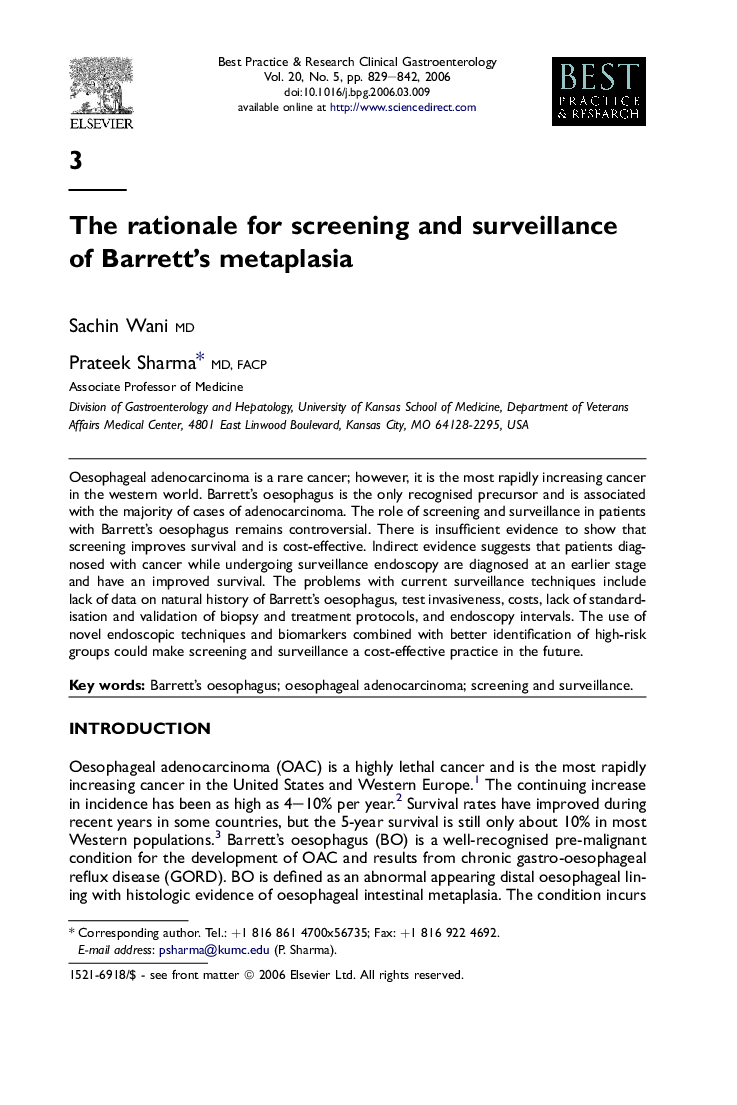| Article ID | Journal | Published Year | Pages | File Type |
|---|---|---|---|---|
| 3254777 | Best Practice & Research Clinical Gastroenterology | 2006 | 14 Pages |
Abstract
Oesophageal adenocarcinoma is a rare cancer; however, it is the most rapidly increasing cancer in the western world. Barrett's oesophagus is the only recognised precursor and is associated with the majority of cases of adenocarcinoma. The role of screening and surveillance in patients with Barrett's oesophagus remains controversial. There is insufficient evidence to show that screening improves survival and is cost-effective. Indirect evidence suggests that patients diagnosed with cancer while undergoing surveillance endoscopy are diagnosed at an earlier stage and have an improved survival. The problems with current surveillance techniques include lack of data on natural history of Barrett's oesophagus, test invasiveness, costs, lack of standardisation and validation of biopsy and treatment protocols, and endoscopy intervals. The use of novel endoscopic techniques and biomarkers combined with better identification of high-risk groups could make screening and surveillance a cost-effective practice in the future.
Related Topics
Health Sciences
Medicine and Dentistry
Endocrinology, Diabetes and Metabolism
Authors
Sachin MD, Prateek (Associate Professor of Medicine),
